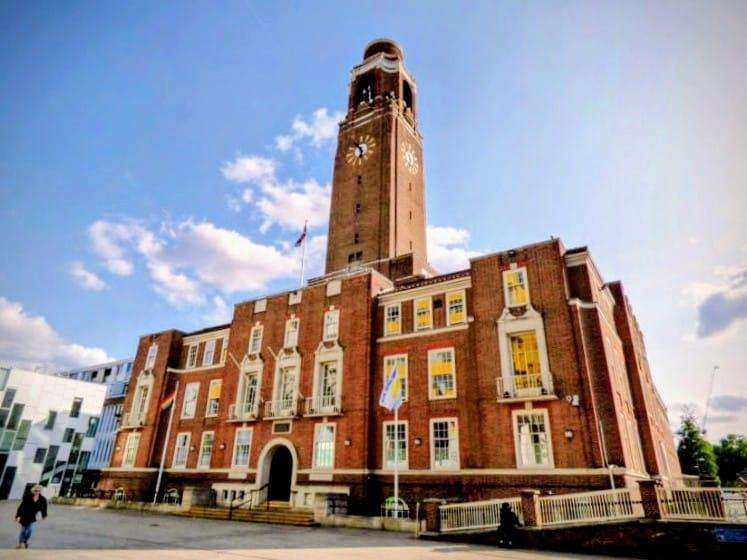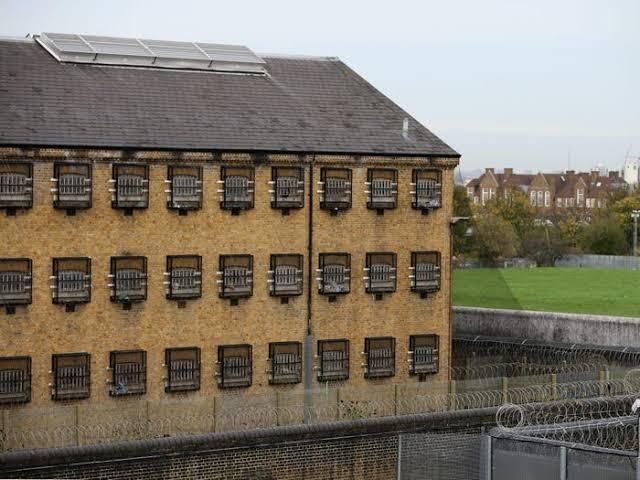According to a watchdog, HMP Brixton, the most overcrowded jail in the nation for moderate-risk offenders, is not doing a good job of preparing its convicts for release, as over half of them claim it is simple to obtain drugs.
When they had nothing productive to do, many of the 740 men detained there, according to inspectors, had turned to narcotics. One person's cell was shared by two thirds of the men.
In a report, Charlie Taylor, the chief inspector of prisons, described filthy, small cells centred around a toilet, no natural light, and some inmates detained for longer than twenty-three hours per day.
According to Taylor, the prison's location in London offered special benefits due to the abundance of jobs available in the area, which ought to have given freed prisoners great chances.
He stated, "We found much to commend about the many dedicated staff members at Brixton, but the prison was fundamentally failing to deliver on its intended role as a training and resettlement prison."
In June, inspectors paid a visit to the south London prison. It was discovered that, in spite of the 140 men who are released each month, inmates were not being adequately prepared for their reintegration into society.
Inspectors noted that the lack of authorised offending behaviour programs impeded efforts to lower risk, particularly for individuals convicted of sexual offences. The report stated that no prisoners had been transferred despite attempts to arrange their transfer to other institutions that provided programs that would be appropriate for them.
No prisoners were being released on temporary licence and many staff told inspectors that the prison did not have enough space or infrastructure to be an effective category C resettlement jail. At the time of the inspection, the employment hub was closed and the employment advisory board had been disbanded.
Two-thirds of prisoners were in shared cells designed for one person, the report said. Cells designed with toilets in the middle made it impossible to have enough furniture for two prisoners, it added. Some prisoners on the basic regime had just 45 minutes a day to shower and go outside.
With nothing to do and being confined to their cells, many prisoners were turning to drugs. Inspectors reported that 450 prisoners were receiving support for substance misuse, and 42% of prisoners said it was easy to obtain illicit drugs.
HMP Brixton was one of the prisons that freed inmates two weeks ago under an early release scheme to ease an overcrowding crisis.
Andrea Coomber, the chief executive of the Howard League for Penal Reform, said: “If someone is sent to prison, we should do all that we can to support them to move on from crime and live healthily. Brixton is doing the opposite, with hundreds of men locked up for hours on end in dirty, overcrowded cells and turning to drugs when they should be getting training and employment.
“But Brixton is not an isolated case. This is the latest in a long line of inspection reports on overcrowded prisons up and down the country that are failing to turn lives around.”
"The new government has been forced to take action across the prison estate so we can continue to lock up dangerous offenders, protect the public, and make prisons safer for hard-working staff," a Ministry of Justice spokesperson stated. "The previous government inherited a justice system in crisis."
"HMP Brixton has already taken great steps to address the issues brought up in this report, such as strengthening supervision for released offenders, renovating the wings, and utilising its X-ray scanner and intelligence-led cell searches to crack down on contraband entering the prison."








.svg)



